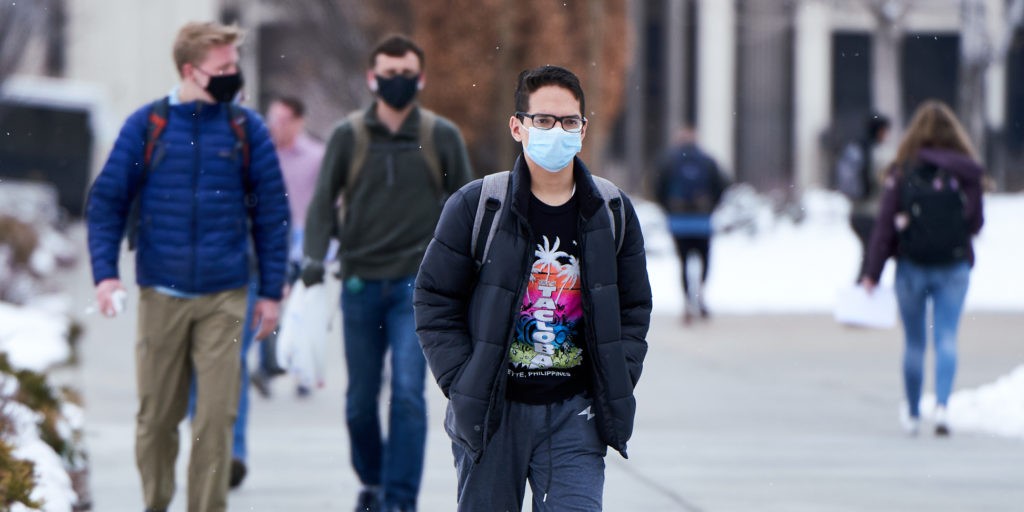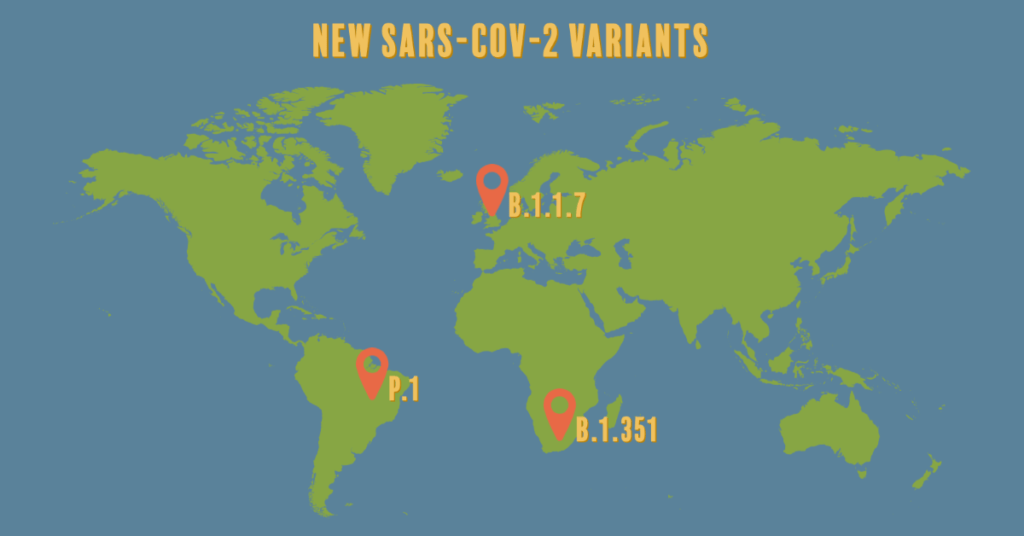
The effects of new SARS-CoV-2 variants on the BYU community are still largely unknown. However, BYU virology researchers said it is normal for viruses to mutate, and if students and faculty continue to follow guidelines like mask-wearing and washing hands, BYU should stay open.
Though the U.K. variant has been found to be more contagious, BYU researchers Brian Poole, Brad Berges and Brandon Lopez said it most likely will not be deadlier than the original virus found in the U.S. and the current vaccines should still work against the variants.
Berges and Poole are both professors in the Microbiology and Molecular Biology Department, and Lopez is an undergraduate student studying microbiology. All three have done research on SARS-CoV-2.
One recent study Berges and Lopez participated in focused on how COVID-19 reacts to disinfectants such as hand sanitizer. Poole recently published a paper about overcoming vaccine hesitancy.
According to the Centers for Disease Control and Prevention website, there are three new variants of the virus that causes COVID-19: the U.K., Brazil and South Africa variants.
The only one detected in Utah to date is the U.K. variant classified as B.1.1.7. The U.K. government has found the virus to spread 50% more efficiently than the current strands found in the U.S., Berges said.
“In other words, if I’m standing close to you, and talking to you or coughing around you, maybe there’s a 10% chance you would get infected from me. But if I have (the U.K. variant), there’s now a 15% chance you’d get infected from me,” he said.
Even if these viruses transmit better than the current ones here in the U.S., scientists have found they don’t cause more serious diseases so far, Berges and Poole said. However, they also said because this is a new virus, there is a lot that scientists can’t predict without more research.
Both Berges and Lopez said they believe if BYU students and faculty continue to follow the guidelines set by the university and the CDC, the school should continue to stay open with a possible rise in cases.
“As long as we’re being careful, we’ll be fine. The issue comes when we’re not being careful,” Lopez said. “A moment of carelessness is when transmission happens the most.”
Berges said the changes in the virus can’t be detected from a standard test, which makes it difficult to track the variants.
“We do have the capacity here at BYU to actually determine the sequence of which virus somebody has,” he said, adding that it’s unlikely BYU will start testing for these variants unless a new variant has a higher fatality rate.
The vaccines being administered in the U.S. will still work against the new variants but are slightly less effective in protecting people from contracting the variants compared to the original virus, Poole said. However, he believes this shouldn’t put anyone off from getting the vaccine.
“So far, (the vaccines) have still all been highly effective against the serious effects of the virus,” he said. No one who received the vaccine has been hospitalized or died due to COVID-19.

COVID-19 variants
B.1.1.7 or U.K. variant: According to the CDC, this variant was identified in the U.K. in fall 2020. It is known to spread more quickly and easily than other variants. It was first detected in the U.S. near the end of December, and over 1,200 cases have since been reported in the country. It is the only variant detected in Utah so far.
B.1.351 or South Africa variant: This variant was first detected in South Africa with similar changes to the U.K. variant, but developed independently from this variant. So far, 19 cases have been reported in the U.S.
P.1 or Brazil variant: As the newest variant to be detected, the P.1 variant was first found in people traveling from Brazil to Japan. It has then spread to the U.S. with two cases detected in Minnesota and another case in Oklahoma.




